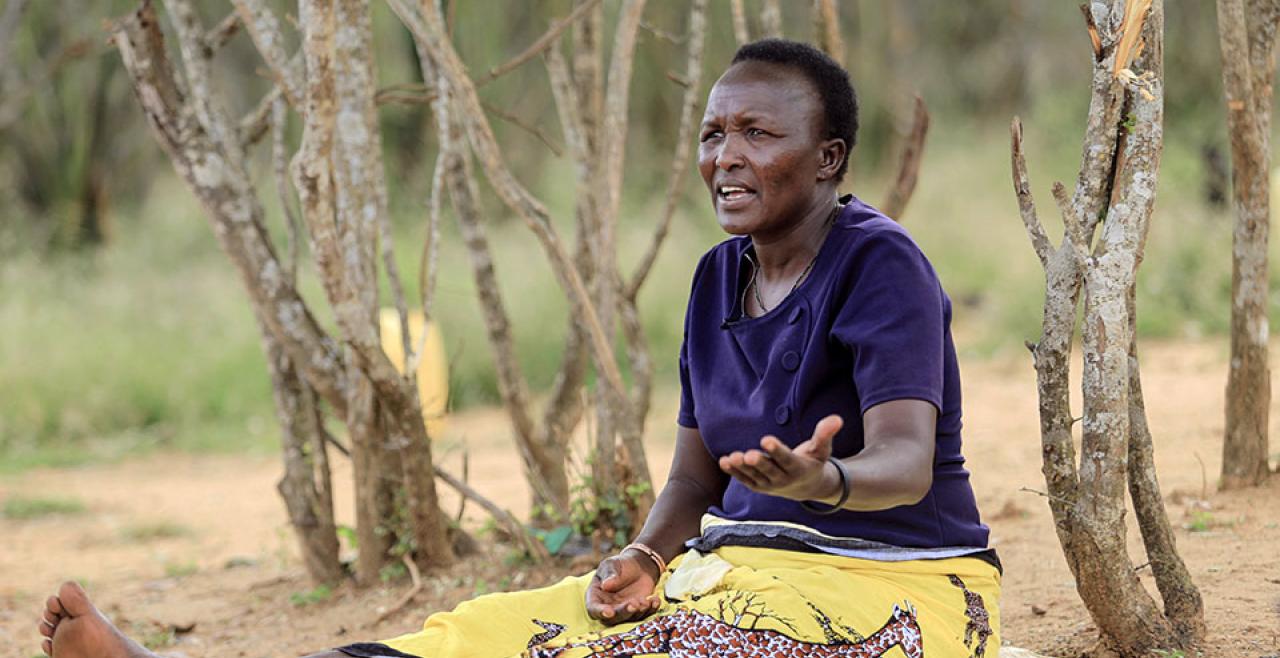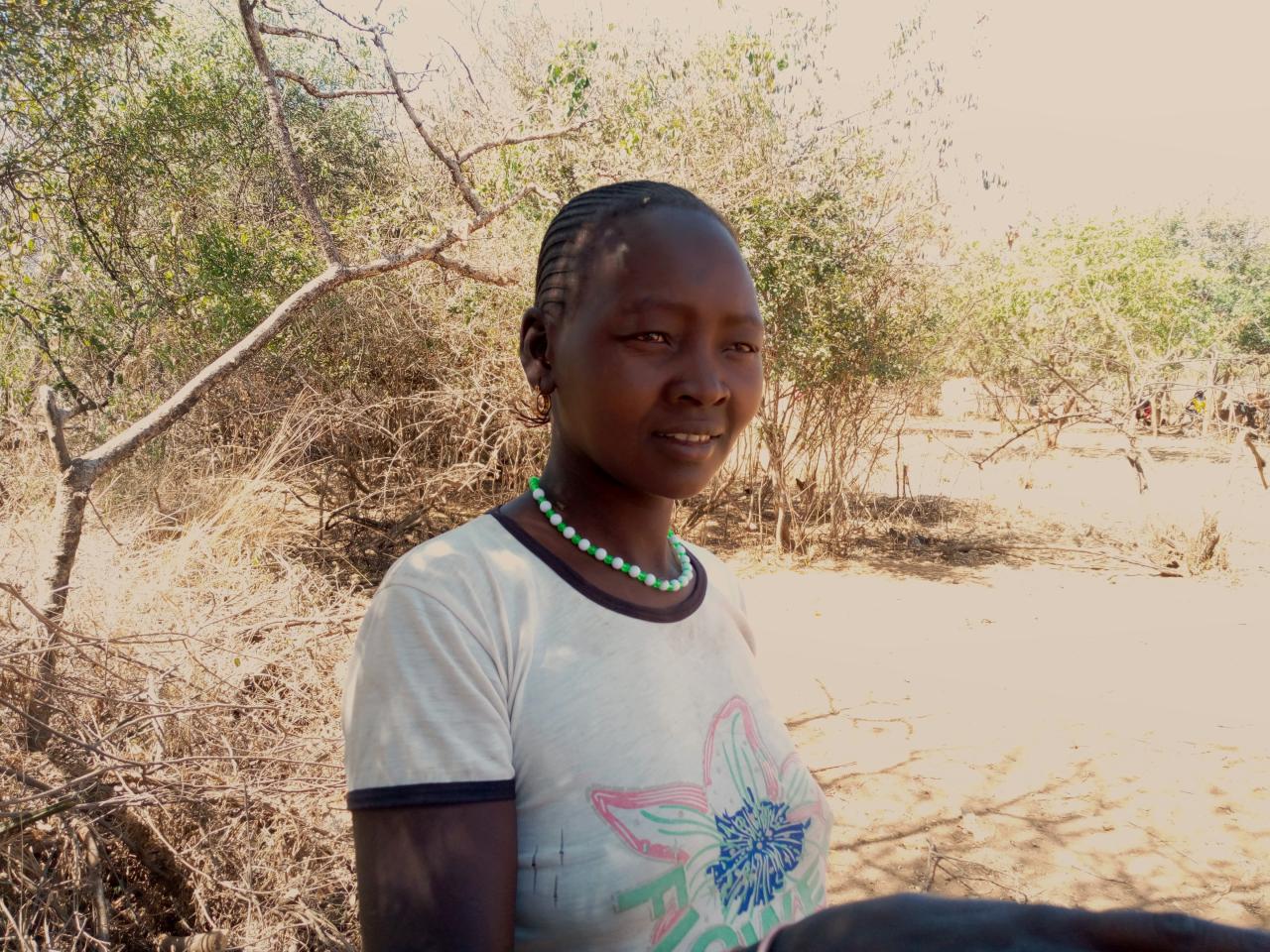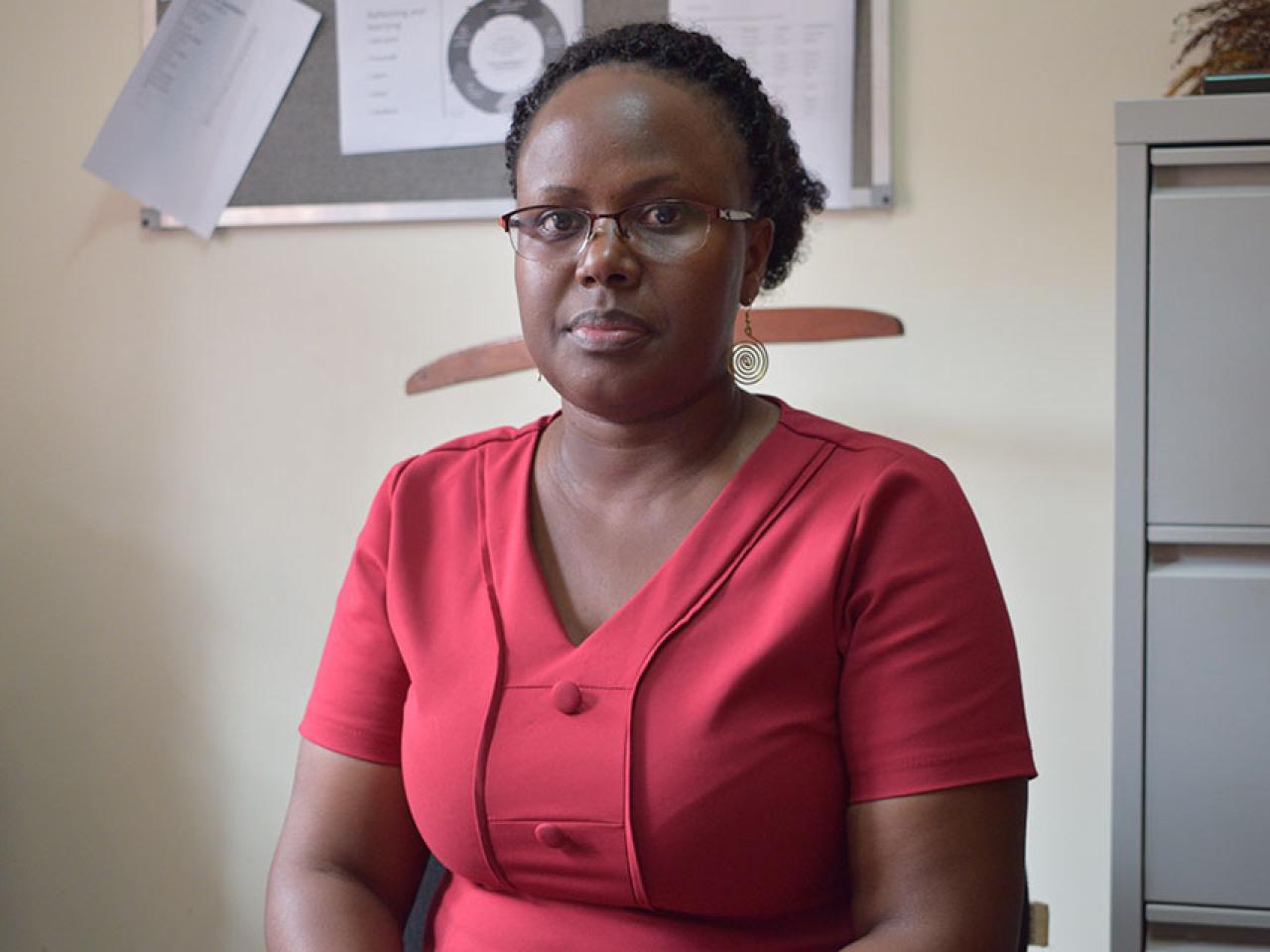Rooting out FGM in rural Uganda

AMUDAT, Uganda - From an FGM survivor to a practitioner to now an advocate working to eliminate the practice in her community, Priscilla Nanagiro is among 60 community activists working with a UN Women programme supported by the EU-UN Spotlight Initiative.
Priscilla Nanagiro was only 13 years old when she underwent female genital mutilation (FGM). She went into the process willingly, believing that it was her initiation into adulthood.
“I bled over and bled the whole day, and my parents were worried, other girls were also worried since I was over-bleeding and things were not working well. Some of them feared to undergo FGM as result of me over-bleeding but they were forced by their parents to do it,” remembers Ms. Nanagiro.
Although it was a painful process, Ms. Nanagiro endured, and later in life, she went on perform FGM on other girls in her village in Amudat county, Uganda. It gave her supplementary income to support her family.
Close to 95 per cent of girls and women in her Pokot community have undergone female genital mutilation (FGM), a harmful practice that involves the removal or injury of external female genital organs for non-medical reasons. It is a violation of women’s human rights and can have devastating health consequences that include hemorrhaging, infection, chronic pain, childbirth complications and in severe cases, death.
"Through teachings about the dangers of harmful cultural practices like FGM, I have learnt a lot. I feel motivated." - Priscilla Nanagiro, FGM survivor and former practitioner
Although a 2010 law made FGM illegal in Uganda, the practice has continued and gone underground, because the community still believes it to be a necessary rite of passage for young girls. Now, FGM is often performed in a rush, in unsafe and unsanitary conditions, thus increasing the health risks. Girls travel in small groups to a remote area where they get cut and sometimes, they may seek treatment at health facilities later.
UN Women is working with the NGO, Communication for Development Foundation Uganda (CDFU), supported by the Spotlight Initiative, to drive out the practice of FGM in rural communities in Uganda. The programme uses a methodology called “SASA!” – a comprehensive model that has had much success in changing harmful social norms through community engagement around the world, and particularly in Africa.
“UN Women and partners have been using the SASA! Model to change the mindset of community members. The programme uses media, communications, and community dialogues to address the root of the problem and the social dynamics that have allowed for FGM to continue. It also targets community elders who are the gatekeepers of the traditions and social norms,” explains Evelyn Letiyo, UN Women programme specialist in Uganda.
When Priscilla Nanagiro learnt about this programme and attended a training session, she learnt about the consequences of FGM on girls and women and understood the implications for the first time. She decided to stop practising FGM and focused instead on her business, selling indigenous (Pokot) clothing and accessories.
"The programme targets community elders who are the gatekeepers of the traditions and social norms.” - Evelyn Letiyo, UN Women programme specialist
“Through teachings about the dangers of harmful cultural practices like FGM, I have learnt a lot. I feel motivated, which was not the case before,” says Ms. Nanagiro, who is committed to root out FGM from her community.
“SASA! Together” triggers communities to examine the power imbalances between men and women in their own lives and within their communities, which underpin gender-based violence, including FGM,” explains Anne Gamurorwa, Executive Director of CDFU. “CDFU has trained and is working with a team of 60 community activists in Uganda under this programme (33 of whom are male and 27 are female). The community activists conduct group dialogues and one-on-one exchanges with community members to change their attitudes.”
Ms. Nanagiro is one of the community activists and proud about her new path.Her role as a CDFU-trained community activist and a drama performer has made her a popular figure in her community and helped grow her business. “Today I am an agent of change, championing the end of what I can only describe as a painful and dehumanizing experience. Everybody was surprised when I openly started talking to members of the community and calling for an end to FGM; they thought that it was a joke, until I mobilized fellow community members and we started a drama group to educate our people on the dangers of FGM,” she says.
“I believe there is more that needs to be done, but we are on the right track. We are engaging youth, community elders, and religious leaders and working with parents so that they understand the dangers of FGM,” says Ms. Nanagiro.
When asked about the best solution, Ms. Nanagiro is certain that ensuring girls’ education is the best way to end FGM once and for all.
This work is supported by UN Women under the Spotlight Initiative, a global, multi-year partnership between the European Union and the United Nations to eliminate all forms of violence against women and girls. In Africa, the Spotlight Initiative aims to eliminate sexual and gender-based violence, including harmful practices, and it is currently scaling up existing initiatives on FGM and child marriage across the region.
Article originally published by UN Women


